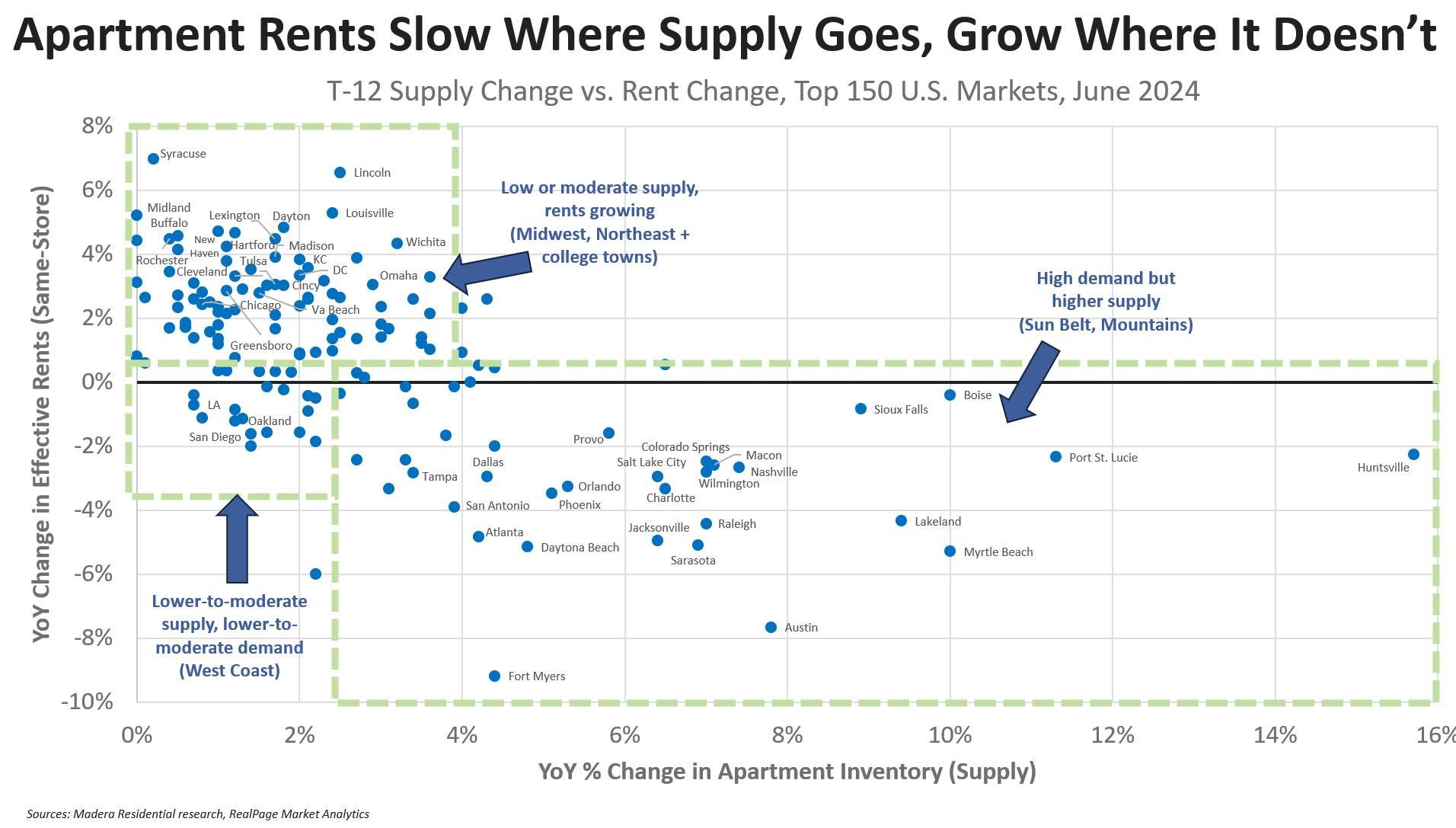Rarely will I ever step into the political space. But when politics enters into my space, you better believe I will put my opinion out in the open.
The current administration as of yesterday in Las Vegas just officially unveiled a plan to cap rents nationwide at 5% for “corporate” owners of properties over 50 units. This is laughable and should not be taken seriously. Anyone pushing for this sort of policy has not done their homework on the topic.
Price controls in any market do the opposite of what they set out to do, especially when it comes to housing. This is Economics 101. It is not a partisan issue amongst economists. An overwhelming number of economists on both sides of the aisle agree that price controls disincentive supply, create market inefficiencies, disincentive capital investments, which together DRIVES UP PRICES and lowers the quality of our existing housing stock.
The top economist of the Obama administration, Jason Furman, had this to say in the Washington Post: “ Rent control has been as disgraced as any economic policy in the tool kit. The idea we’d be reviving and expanding it will ultimately make our housing problem worse, not better”. This is not a red v. blue issue. Rent control in any form should be a no-go zone for any politician because of how dangerous it is. This is playing with fire.
We have seen this play out across various local markets domestically and abroad. You do not fix a SUPPLY problem by addressing DEMAND! If we want to lower housing costs in the US, we need to focus on the COST OF BUILDING versus the cost of renting. If you look at the cities/states with rent control policies today, they’re all in lower construction markets. Builders avoid markets where they are unwanted. This will create an exodus of capital from the US.
The administration also noted that this would be temporary. A government policy is only temporary until it becomes permanent. Policies like this establish bureaucracies and new profit-making incentives and systems that create incumbent stakeholders with something to lose if/when the new status quo is threatened. Once something like this rolls out, it will be impossible to put back into the bottle.
This policy, as it is written today, would only affect “corporate” owners of 50+ units. This doesn’t make any sense. It’s completely arbitrary. Why would owners be penalized based on the size of a building? If the current administration actually believed that rent control is a good thing, then they would not exempt anyone.
Current multifamily starts are down 52% YOY according to the U.S. Census, and this is mainly due to higher interest rates combined with flat/declining rents. The administration did include some positive incentives for creating more new construction, but this is like driving a car with the brakes on. Where are we seeing rents come down the most? Areas where we are seeing the most new construction. Two words: Austin, Texas.
Take a look at NYC, for example, rent control has been revised 4 DIFFERENT TIMES in order to recapture units previously exempt from the rent controls. If something like this gets passed, it is only the beginning.
I will say it again, if we want to lower housing costs in the US, we need to focus on the cost of building versus the cost of renting. Local governments need to work towards eliminating excessive policies that hinder construction. The below are 5 policies that will work towards creating more supply.
1.) Implement a land value tax in order to incentivize additional supply and disincentivize underdevelopment.
2.) Work towards reducing the local market's authority to block new development.
3.) Streamline permitting in local markets.
4.) Roll out tax incentives to builders. Builders are our friends, not our enemies.
5.) Address local zoning ordinances in order to allow for more up-zoning.
The good thing is that this will likely never pass. Frankly, I am not sure this is even constitutional on a federal level. Most people in the US are renters, so I understand why from a political lens this might sound like a good idea to the current administration. I just think it is incredibly dangerous to even consider something like this, especially on a federal level.
I do my best to stay out of politics. I consider myself an independent and do not align with either party. If this were coming from a Republican administration, I would say the exact same thing. Bad policy is bad policy. Simple as that.











